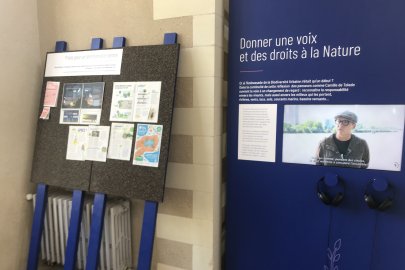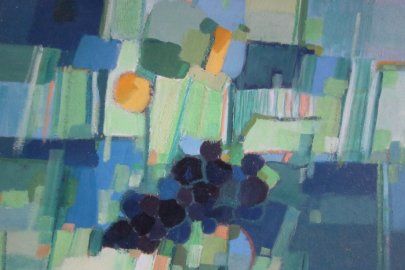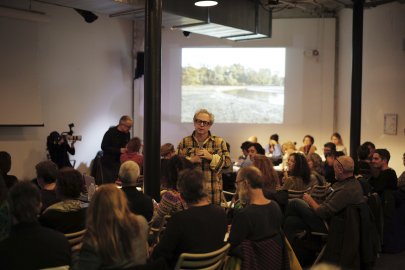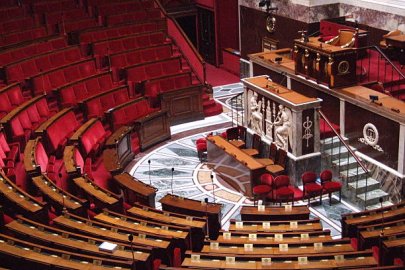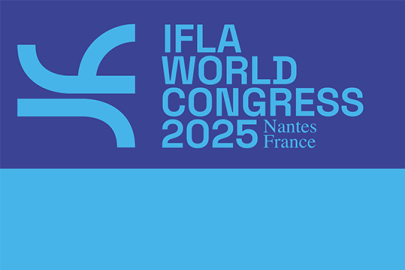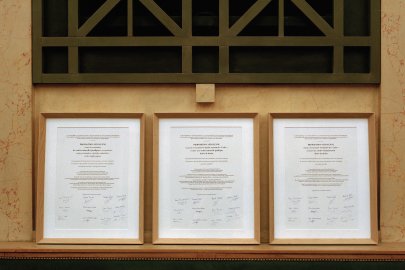Two high school classes, from the first and final years at Lycée Albert Camus in Nantes, visited the Institut d'études avancées as part of their coursework on the rights of nature. They watched the documentary Green Justice: When Nature Files a Lawsuit by Stenka Quillet in our facilities and continued the discussion with Rémy David, head of the Loire Mission for Nantes Métropole, a former student of the school and a member of the Council of Witnesses, and Caroline Lanciaux, coordinator of the Towards an International of Rivers project.
Green Justice: When Nature Files a Lawsuit
Our planet is burning, and NGOs seem overwhelmed by the number of catastrophic situations they need to manage... As soon as one fire is put out, another ignites on the other side of the world. Now, a new breed of activists is stepping in to file lawsuits on behalf of nature. These are lawyers and legal experts who are taking over from traditional NGOs—white-collar rangers whose clients are rivers, forests, and wildlife. They are fighting for nature to be recognized as a legal person, capable of filing lawsuits in its own name.
They scour legal texts for loopholes, targeting nature's enemies on their own turf and dragging them to court. The law becomes a weapon in the face of urgent crises and leaders who prioritize economic exploitation over environmental protection.
Who are these Earth defenders? From the Galápagos Islands in Ecuador to the Białowieża Forest in Poland, and through France and New Zealand, we followed their David-versus-Goliath fight. How are they succeeding where NGOs have failed? How do they outwit the strategies of multinational corporations and governments? For many, green justice is now seen as one of the best hopes—if not the last—for saving our future on Earth.
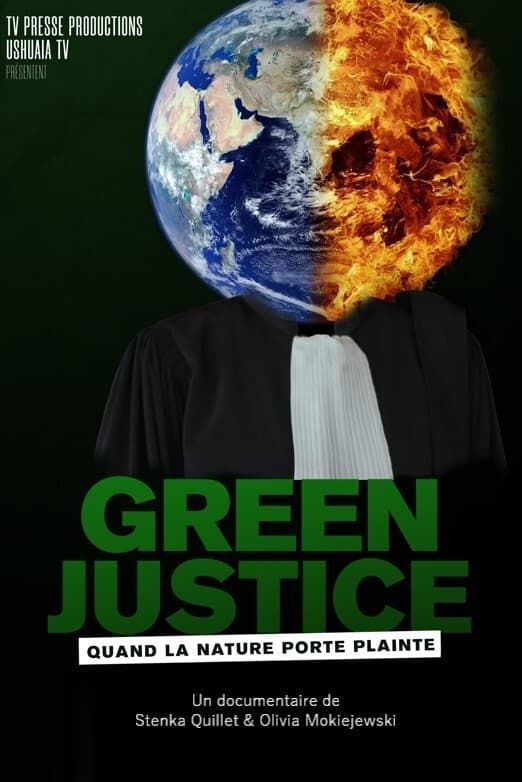
Testimony of Aurélie Rebeyrat, English teacher at Lycée Albert Camus
Since last year, my colleague Frédérique Krupka, a law teacher at the same school, and I have been discussing this project led by Camille de Toledo. It’s a bold idea of granting legal personality to rivers. This year, the theme has resurfaced strongly. With my first-year students, we’ve been exploring the challenges of climate change, starting with a discussion with climate activists. “What can we do as young adults?” they asked them. This exercise encouraged the students to reflect on the best strategies to protect our planet.
At the same time, they met Frédérique’s senior class from the Law and Major Issues of the Contemporary World program, who explained: “Companies have legal personality, so why not nature?” This idea deeply resonated with the students, who then examined the case of the Whanganui River in New Zealand, the first to be granted legal personhood.
To deepen their understanding, they watched Green Justice at the Institute for Advanced Studies in Nanres and engaged in a debate with Caroline Lanciaux and Rémy David on environmental justice issues. From these discussions, their final project emerged: Act Green. The students will choose a key issue, such as air pollution, deforestation, or ocean acidification, and create a poster with a slogan, solutions, and a QR code linking to a local organization.
This year, we’re incorporating a new element: law. I’ve asked them to include an example of a law or legal initiative aimed at protecting nature. This will prepare them for the November 16th conferences, and who knows, perhaps a future debate with Caroline and Rémy on ecological justice!
